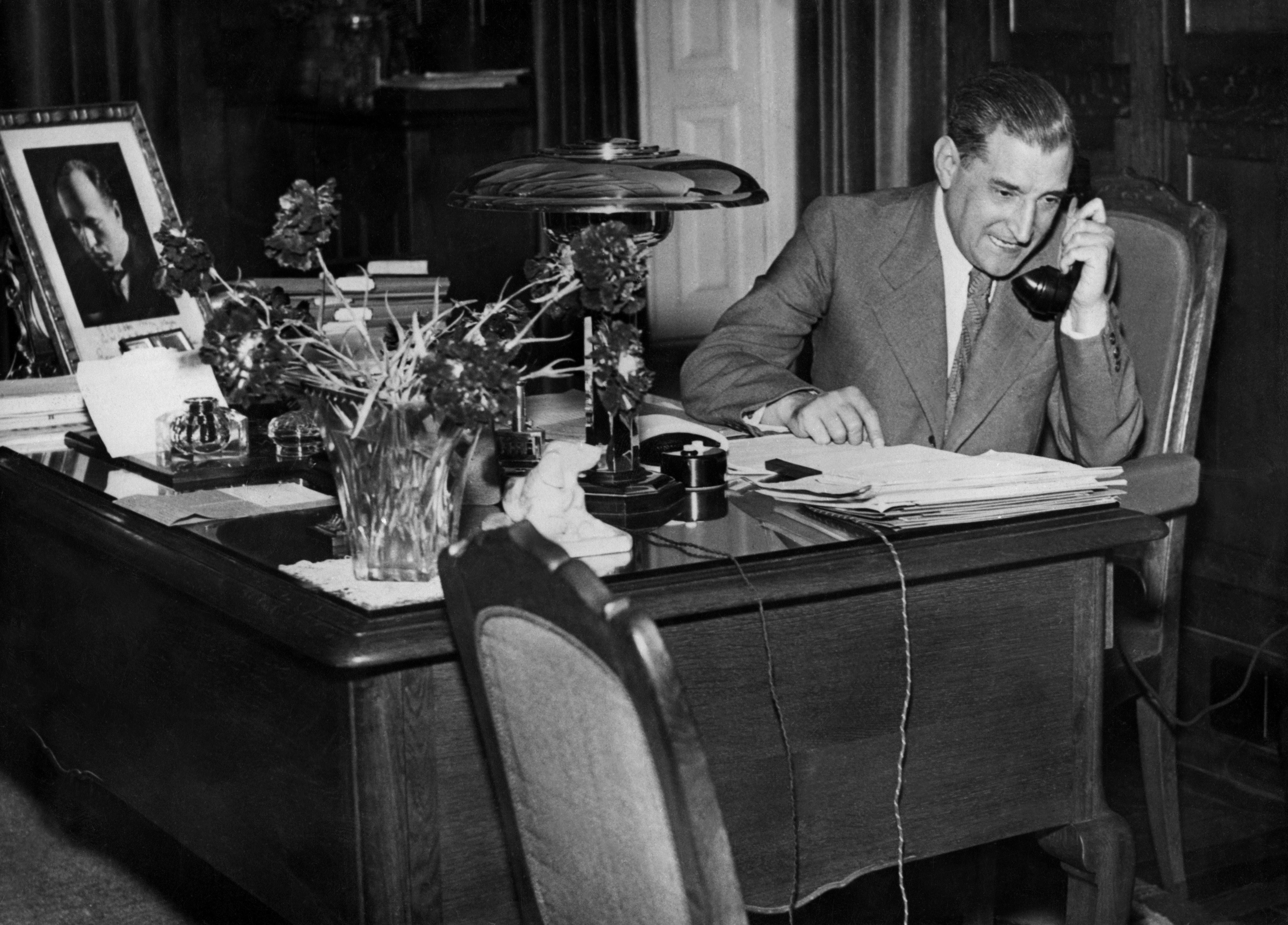Fake news: How Portugal ‘fooled’ ex-dictator to believe he still led from his sickbed
António de Oliveira Salazar thought he was in power for two years after being replaced, new book claims

Portugal’s late dictator António de Oliveira Salazar was fed an “absurd” fantasy by aides to make him believe that he still governed the country for two years after he was replaced because of failing health, a new book claims.
Mr Salazar ruled Portugal from 1932 until 1968 when he suffered a series of health problems and was replaced as head of state by Marcelo Caetano.
Until his death in 1970, aides gave Mr Salazar a fake version of the newspaper Diario do Noticias each day which carried fictional stories to make it seem like he was still in charge.
Each night, the editor would create a special edition of the newspaper - just for Mr Salazar - to remove any reference to Mr Caetano and his government.
Ministers would attend meetings with the ailing dictator and even make disparaging comments against Mr Caetano, according to the newly-released book.
Marco Ferrari, an Italian journalist and author of ‘The Incredible Story Of António Salazar, The Dictator Who Died Twice’ says that the fantasy continued until the despot died in 1970.
“It was an absurd situation that lasted two years, until Salazar’s death and which comprised the entire ruling class of the country,” Mr Ferrari told El País, the Spanish newspaper.
The story has shades of the 2003 film Goodbye Lenin, in which a German man tries to protect his mother - who has recovered from a coma - from the shock of discovering that the Berlin Wall has come down, by recreating the world before the fall of Eastern Germany.
In Portugal, one clue that Mr Salazar believed the fantasy was in fact true came in an interview wih the French newspaper L’Aurore in 1969.
He told the journalist that Mr Caetano was not in government but had remained working as law lecturer.
Mr Salazar led the conservative Estado Novo movement which ruled Portugal from the 1930s to 1974.
A staunch Catholic, he was opposed to communism and socialism but distanced himself from Nazism and fascism.
“(Salazar) ruled the largest colonial empire from 1932 to 1968, from Hitler to the Beatles. He maintained power with the support of the Church and the farmers, suppressing the unions, the freedom of press and any other type of political opposition or dissidence,” said Mr Ferrari.
In 2007, Mr Salazar was voted the “Greatest Portuguese of All Time” in a television poll that provoked an uproar by opponents and heated academic debates on his role and legacy in the country’s history.
Mr Salazar ruled for so long thanks in part to a network of 20,000 secret police and an estimated 200,000 informants, historians believe.
The rule of the Estado Novo came to an end in 1974 with the peaceful ‘Carnation’ revolution which re-established democracy.



Join our commenting forum
Join thought-provoking conversations, follow other Independent readers and see their replies
Comments